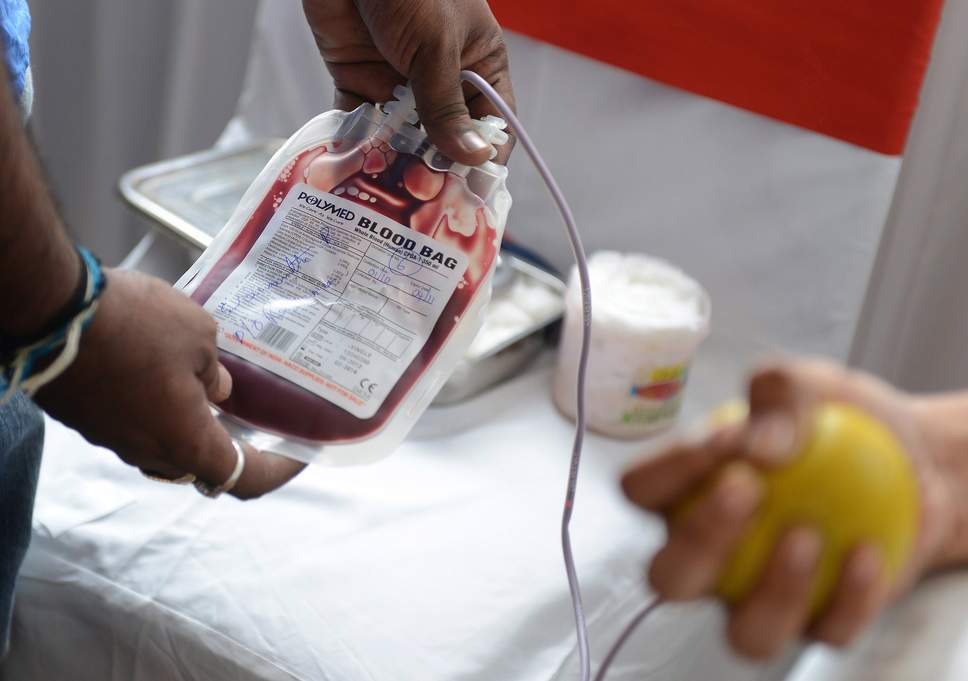A Consultant Haematologist at the Federal Ministry of Health, Dr Uche Nwokwu, has urged Nigerians to donate blood to reduce Coronavirus (COVID-19) fatality and to save lives of those in need of blood.
Nwokwu made the call in an interview with the News Agency of Nigeria (NAN) on Sunday in Abuja to commemorate the World Blood Donor Day (WBDD).
WBDD is celebrated every June 14, to raise awareness on the need for safe blood and blood products, and to appreciate blood donors for their life-saving gifts of blood.
READ ALSO:51 medical officers, 17 inmates test positive in Bauchi State
“The people who are dying, the fatalities are more of those who have underlying diseases and those underlying diseases may require a blood transfusion.
“If their haemoglobin concentrations were optimal, they may have survived better than as it is now.
“This type of pandemic is very crucial because these patients require a blood transfusion, in spite of the pandemic; they are people that have other illnesses that also require blood.
“The pandemic period is even a time that many more people can donate, if you ask me, I will say, those who can’t donate PPE (Personal Protective Equipment), money, can donate blood.
“Blood donation is a way of giving back to society. Giving back to humanity and giving back to our immediate environment in terms of contributing toward fighting COVID-19,’’ he said.
According to him, people who have different diseases condition need blood and pandemic of COVID-19 remains a novel virus that the pathology was yet to be fully understood.
“There are a lot of theories about its pathogenesis, pathophysiology; people have talked about the blood component of the disease.
“They believe that a shortage of blood to the lungs is the more reason that COVID-19 patients need blood.
“One thing, we must understand is that blood is what carries oxygen from the lungs to other tissues of the body.’’
Nwokwu, a consultant haematologist at the National Cancer Control Programme in the ministry, however, called on the stakeholders in the health sector to create more awareness on the benefits of donating blood.
He urged them to use the WBDD to raise awareness for blood donation, saying “World Blood Donor Day is a very crucial day for the health system.
“WBDD is a day where awareness is being raised and people are enlightened on the need to donate blood to save lives; blood is life, anytime you donate blood, a life we saved.
“Blood donation is a very critical component of patient care, ranging from those we have in Trauma, following road traffic accidents, those that are going for surgeries and those with critical illnesses that require a blood transfusion.
“So, it is a very important day for awareness to be raised across the globe and in our own case in the country for the need for people to willing, voluntarily donate blood.
“Voluntary donors are found to be safer than those who donate blood for replacement, maybe for family relations and those who are doing it for business.”
The consultant emphasised that those who voluntarily donate have a safer blood product than those who do it for monetary gain or for relations.
NAN reports that WBDD is a set aside by the World Health Organisation (WHO) for member states’ and countries around the world, to raise awareness of the need for safe blood and blood products.
It is also a day set aside to thank blood donors for their life-saving gifts of blood.
According to WHO, blood is an important resource, both for planned treatments and urgent interventions.
“It can help patients suffering from life-threatening conditions live longer and with a higher quality of life, and supports complex medical and surgical procedures.
“Blood is also vital for treating the wounded during emergencies of all kinds (natural disasters, accidents, armed conflicts, etc.) and has an essential, life-saving role in maternal and perinatal care.
“A blood service that gives patients access to safe blood and blood products in sufficient quantity is a key component of an effective health system,’’ declared the global health body.

